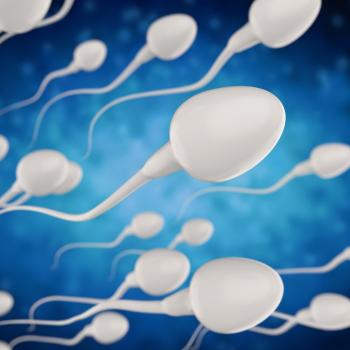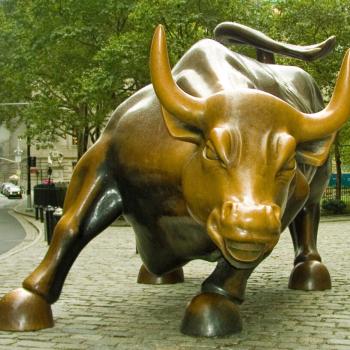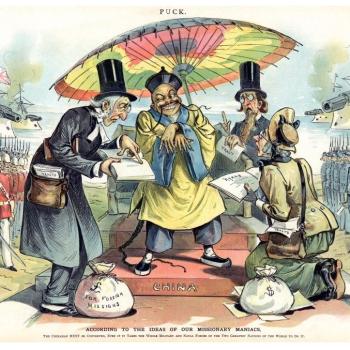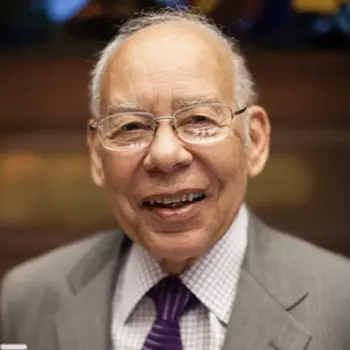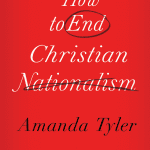The answer is carbon.
Pain is unavoidably part of the package of carbon-based life, explained Denis Alexander this week in his Herrmann Lectures at Gordon College in Wenham, Massachusetts. Alexander, biochemist and emeritus director of the Faraday Institute for Science and Religion in Cambridge, took on the rather large question, “Is Life Going Anywhere?”
Origins and evolution are scientific and theological puzzles. Evolution opens onto theodicy, consideration of why evil exists in the world and the nature of God’s relationship to it. Identifying himself as a Darwinian and a Christian, Alexander had this answer: given the specific conditions under which life on this planet exists, being the carbon-based creatures we are obligates us to pain and death. In Alexander’s words, “If you want to generate organisms with language, mobility, consciousness, relationships and social organization, then you need a complex nervous system and a big brain. Energetically that doesn’t come cheap–it requires a food-chain in which complex carbon molecules are synthesized in other organisms and then consumed by the bearer of the brain by eating.” Space and resources for each new generation rest on the death of the previous ones. Pain is necessary too for creatures sensitive to their environment. Even feeling pain can be construed as a good, protecting us from further harm.
Thus death and suffering are joined at the hip with life and flourishing on earth. Christians can recognize that even as they trust the purposes of God and hope for a future where all sorrows cease. This is not a light comfort.
Still, this kind of thinking is a call to take suffering seriously. People hurt a lot, not just in emergencies or egregious acts of cruelty. It is easy to assume the opposite, to find singular our own troubles but guess that able bodies and minds at peace are the default condition of the people around us. As W.H. Auden observed, the suffering of others often “takes place/While someone else is eating or opening a window or just /walking dully along.” Compassion and hope offer ways to go forward with creation as it is. Compassion is literally “suffering with”: we get at something true when we recognize a real unity with those in pain. And hope confirms that we are right to crave redemption.





